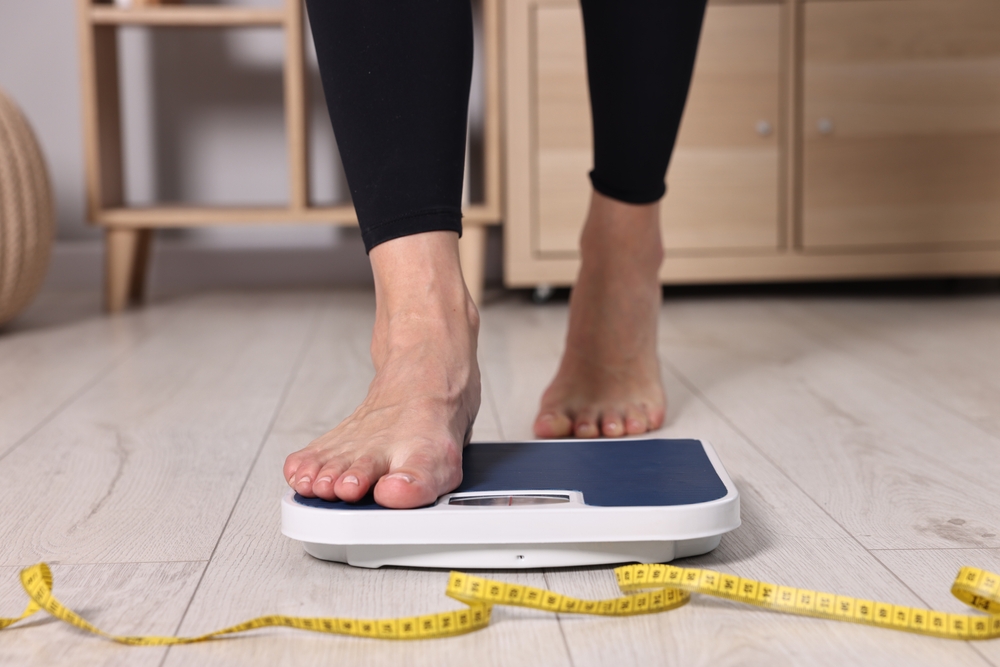Finding a personalized weight-loss program that works for you can be a serious challenge. Fortunately, there’s an experienced weight loss doctor in NYC who can provide the assistance you need. Dr. Philip Rabito has over 20 years of experience as a weight management doctor, and he has helped countless patients reach their short- and long-term goals through customized weight management planning.

The comprehensive program begins with a detailed history and evaluation of targeted lab values, including hormone levels and nutrition markers, which may contribute to weight gain. Hormonal imbalances and vitamin deficiencies are corrected in a safe manner to optimize metabolism and promote fitness.
Dr. Rabito then employs a personalized approach to weight loss by reviewing food diaries and exercise logs and making simple, healthier substitutions that patients can implement long term. This ongoing counseling, coaching, and education process of diet and exercise has proven to be a tremendously successful approach to weight loss for his patients.
Dr. Rabito is also an expert in pharmacologic management of weight loss. As an esteemed board member of The National Board of Nutrition Support Physicians, Dr. Rabito practices evidence-based medicine and does not promote fad diets nor unnecessary supplements.
Having been a weight management doctor for many years, Dr. Rabito understands that every individual is unique and responds differently to various diet and exercise programs, so it may take some fine-tuning to find the personalized weight loss program that’s most effective for you.
If you would like to set up an appointment with our weight loss doctor in NYC, call 877.703.3775 today!
How Much Weight Can I Expect to Lose as Part of Your Program?
Medical weight loss is designed around your unique needs and goals. As a functional nutritionist who has been serving patients for over two decades, Dr. Rabito has a background that you can trust. He has helped patients shave off a few pounds and has helped patients lose over 100 pounds. Generally, it is possible to lose a few pounds each week if you follow your treatment guidelines. In addition to losing weight, your program will also help you optimize your overall health and wellness by fueling your body with nutrient-rich foods.
Are Medications for Weight Loss Used as Part of Your Program?
Dr. Rabito does sometimes include pharmacological products to assist patients. Many weight loss programs rely heavily on medications. That is not the case in our NYC office. Here, you can expect to receive a customized plan that includes nutritional recommendations based on your particular lab results. You can expect to receive care that understands your hormones and how they are affecting your ability to lose and maintain weight. The inclusion of medications in your program will be carefully considered and discussed, allowing you to make the most informed decision about the program details that are right for you.
Will My Primary Care Provider Be Involved in My Weight Loss Program?
If you have a chronic health condition for which you receive ongoing care, your primary doctor may be involved to some degree. Dr. Rabito is an accomplished endocrinologist and functional nutritionist who treats numerous conditions, including Type 1 and Type 2 diabetes, low testosterone, thyroid disorders, and more. When you consult with us for weight loss or nutrition optimization, you will undergo specific lab tests that will help guide the development of your personal weight loss treatment.
How Long Does the Program Last?
Our patients are treated individually based on their lab results, preferences, and response to their treatment guidelines. When you begin your weight loss program with Dr. Rabito, there is no strict end date in mind. The goal of treatment is to help you reach your weight loss goals while also developing nutritional habits that will help you enjoy your new weight for many years, if not indefinitely. Because your body changes as you age, there may come a time when you want to return to our office for adjustments to your nutrition and lifestyle as a way to address age-related concerns quickly and naturally.
How Will My Diet Change?
To lose weight and gain vitality, Dr. Rabito follows proven, whole-food dietary recommendations. These may be different for you than for anyone else because the doctor uses your lab results to guide your diet. The objective is to nourish your body with the vitamins, minerals, and other nutrients that you need most at the time. Depending on your current dietary habits, which you will record in a food diary, your diet may change significantly. Conversely, if your diet already includes lean protein, healthy fats, and an abundance of fresh fruits and vegetables, you may need a few minor adjustments to get on track with optimal weight loss.
What’s the difference between medical and non-medical weight loss programs?
Medical weight loss programs, like the one Dr. Rabito offers, are supervised by a physician and based on your personal health profile. You’ll undergo lab testing, health evaluations, and receive a tailored treatment plan that could include functional nutrition, behavioral support, and prescription medications when needed. Non-medical programs are often generic and lack this level of personalization and clinical oversight.

Can Dr. Rabito’s weight loss program help with post-menopausal weight gain?
Yes. If you’re experiencing post-menopausal weight gain, Dr. Rabito evaluates your hormonal health and addresses imbalances that may be interfering with your metabolism. His approach is especially supportive for women navigating midlife changes.
What should I expect during my first weight loss appointment with Dr. Rabito?
Your first visit includes a full medical history review, a physical exam, and lab testing to assess your thyroid, insulin sensitivity, hormones, and other markers that influence weight. Based on these results, Dr. Rabito creates a customized plan to help you achieve sustainable weight loss.
Are the lab tests required for the weight loss program covered by insurance?
In many cases, yes. Lab testing is often covered by insurance depending on your specific plan. Dr. Rabito’s office can help verify your benefits and clarify any potential out-of-pocket costs before proceeding.
How often will I need follow-up visits during the program?
Follow-up visits are usually scheduled based on your progress and support needs. These check-ins help Dr. Rabito adjust your plan, monitor your health, and keep you motivated.
How does functional nutrition play a role in my weight loss?

Functional nutrition focuses on how your food choices interact with your body’s unique needs. Instead of a one-size-fits-all diet, Dr. Rabito designs a nutrition plan that considers your metabolism, hormones, lifestyle, and medical history to support long-term success.
How do hormone imbalances affect weight gain or loss?
Hormonal imbalances—like thyroid dysfunction, insulin resistance, or changes in estrogen or cortisol—can make it difficult to lose weight. Dr. Rabito evaluates your hormone levels and includes treatments to support hormonal balance if needed.
What happens after I complete the weight loss program?
Dr. Rabito emphasizes long-term strategies to help you maintain your weight. You’ll receive continued lifestyle guidance, metabolic monitoring, and optional follow-up visits to support your results beyond the program.
What are some common myths about medical weight loss?
A few myths include the belief that it’s just about medication, or that it’s only for those who are significantly overweight. In reality, medical weight loss is for anyone who wants a safe, evidence-based approach tailored to their body, not just a quick fix.
Why should I choose Dr. Rabito for medical weight loss in New York?
Dr. Rabito is a board-certified internist with extensive experience in functional medicine and metabolic health, which allows him to take a whole-body, science-driven approach to weight loss. Unlike commercial weight loss programs that rely on rigid diets or one-size-fits-all methods, Dr. Rabito’s care is highly individualized—designed around your unique medical history, lifestyle, hormonal profile, and health goals. He prioritizes long-term success over temporary results, guiding you toward sustainable changes that support not just weight loss, but also improved energy, mood, digestion, sleep, and overall wellness. Whether you're dealing with complex health concerns, hormonal shifts, or simply want a more strategic path to a healthier weight, Dr. Rabito’s thoughtful and compassionate approach ensures you receive the support and medical insight you need every step of the way.
Frequently Asked Questions
Is This Program Suitable for People with Slow Metabolism or a History of Yo-Yo Dieting?
Yes, your program is designed to address slow metabolism and break the cycle of yo-yo dieting. By supporting metabolic repair and providing sustainable strategies, you can achieve lasting weight management.
Can Your Program Help with Weight-Related Conditions like PCOS, Fatty Liver, or Metabolic Syndrome?
Your plan can be tailored to support conditions such as PCOS, fatty liver, and metabolic syndrome. By improving insulin sensitivity and reducing inflammation, you’ll see benefits beyond weight loss.
This comprehensive approach not only helps you lose weight but also improves your overall health, energy levels, and hormonal balance. By addressing these interconnected conditions holistically, you’ll experience more consistent progress and reduce the risk of future weight-related complications.
Is Exercise Required as Part of My Weight Loss Plan?
Exercise recommendations are customized for you. Movement is encouraged but never forced. Whether you’re a beginner or experienced, your plan will match your fitness level and health status.
Can I Do This Program if I Am Vegan, Vegetarian, or Have Specific Dietary Restrictions?
Yes, your dietary preferences and restrictions are fully respected. Your plan will be customized to ensure it aligns with your lifestyle while supporting your weight loss goals.
What Support Systems Are Available Between Visits?
You’ll have access to continuous support between visits through follow-ups, educational materials, and direct communication with Dr. Rabito’s team. This helps you stay motivated and informed throughout your journey.
How Do You Address Emotional Eating, Stress, and Lifestyle Factors in Weight Loss?
Your program includes strategies to manage emotional eating, reduce stress, and support lifestyle changes. Techniques like mindfulness, sleep improvement, and stress management are integral to your success.
Are Nutritional Supplements Recommended as Part of My Treatment?
If lab results reveal deficiencies or imbalances, supplements may be recommended to support metabolism, energy, and hormonal balance. All recommendations are personalized to your needs. Dr. Rabito's practice does not promote unecessary supplements.
Is There a Maintenance Phase After Reaching My Goal Weight?
Yes, once you reach your goal, you’ll enter a maintenance phase focused on sustaining results. This phase reinforces healthy habits and helps prevent weight regain.
How Quickly Will I See Results, and What If My Progress Slows Down?
Results vary, but your progress will be closely monitored. If your weight loss slows, your plan will be adjusted to help you continue toward your goals.
Can Men Also Benefit from Dr. Rabito’s Weight Loss Program?
Yes, the program is effective for both men and women. Your treatment will be tailored to your body’s specific needs to ensure optimal results.
What Are the Costs of the Program and Are Payment Plans Available?
Program costs depend on your personalized plan. Flexible payment options may be available. Details will be provided during your initial consultation.
What Are the Risks or Side Effects of Medical Weight Loss?
Dr. Rabito’s approach minimizes risks by focusing on safe, functional medicine principles. Any potential side effects are carefully considered and discussed with you during your consultation.
Contact Dr. Rabito For Weight Loss In NYC!
Please fill out the form in our contact page, or give us a call at 877.703.3775, our office will answer any questions you have regarding our various weight loss services. You can also schedule your one-on-one consultation with Dr. Rabito at our Upper East Side office. Our practice looks forward to serving you!

